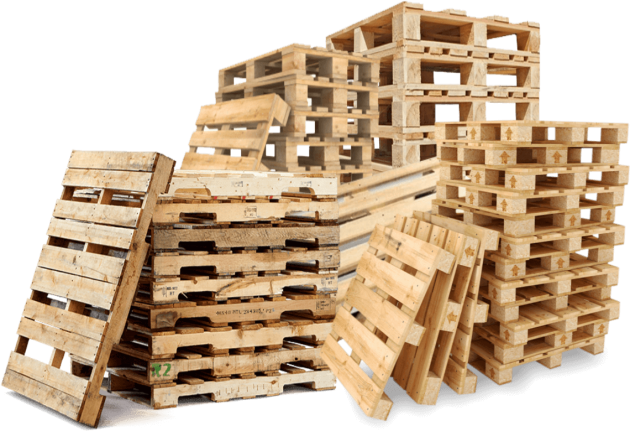Buy and sell wooden pallets can be a cost-effective way to manage shipping and storage needs. Many businesses and individuals trade pallets to save money while ensuring they have durable, reusable materials on hand. The key to success lies in knowing where to find quality pallets and how to sell them at competitive prices.
Wooden pallets vary in size, condition, and type of wood, which impacts their value. Understanding these differences helps sellers set fair prices and guides buyers to choose pallets that fit their specific requirements.
The market for wooden pallets is steady due to constant demand in logistics and construction. With the right approach, buying and selling pallets can become a reliable resource or even a small profit-making venture.
How To Buy And Sell Wooden Pallets
Understanding the quality, sources, and sales strategies is essential for effective pallet trade. Proper inspection, knowing trusted suppliers, and preparing pallets for resale can improve outcomes.
Identifying Quality Wooden Pallets
Quality wooden pallets are sturdy and free from major defects. Buyers should look for solid wood with minimal cracks or splinters. The pallet should have intact deck boards and stringers.
Check for signs of damage like rotting, heavy staining, or broken nails. Pallets treated with heat or chemicals will often have stamps indicating their treatment type. Avoid pallets with visible mold or pest infestations.
Dimensions must match the intended use. Standard sizes like 48×40 inches are most common. Weight capacity is also crucial; it should meet the load requirements without sagging.
Sourcing Wooden Pallets For Purchase
Reliable sources include manufacturers, warehouses, and pallet recycling companies. Purchasing directly from warehouses often yields pallets in better condition. Recycling centers can provide lower-cost used pallets but may vary in quality.
Online marketplaces and classified ads offer access to local sellers. They can be useful for bulk purchases or specialized types. Always verify the seller’s reputation and review samples if possible before buying large quantities.
Pricing depends largely on the pallet condition, type, and volume bought. Buyers should request detailed descriptions and photos to assess suitability prior to purchase.
Best Practices For Selling Used Wooden Pallets
Sellers must ensure pallets are cleaned and inspected before offering them. Removing dirt, nails, and loose boards improves pallet appeal. Clear any markings that might confuse buyers regarding pallet condition.
Detailing pallet dimensions, type of wood, and weight capacity supports transparency. Sellers often provide volume discounts or bundled pricing to encourage bulk orders.
Communication is key: sellers should respond promptly to inquiries and provide precise condition reports. Shipping options or local pickup can be arranged depending on buyer location, making transactions smoother.
Documentation, such as heat treatment certificates, increases buyer confidence and may expand market reach.
Key Considerations When Trading Wooden Pallets
Successful trading requires attention to pricing dynamics, regulatory requirements, and the trustworthiness of trading partners. Each element directly influences profitability, legal safety, and transaction reliability.
Pricing And Market Trends
Wooden pallet prices fluctuate based on supply, demand, and material costs. Seasonal peaks often occur in industries like agriculture and retail. Monitoring market reports and local demand helps set competitive prices.
Prices also vary by pallet type—new, used, or repaired—and by wood quality and size. Businesses should track competitor pricing to avoid undervaluing or overpricing pallets. Volume discounts and bulk purchasing can further impact the final cost.
Economic factors such as timber shortages or transportation costs affect pricing too. Staying updated on these variables enables informed negotiation and pricing strategies.
Legal And Environmental Compliance
Trading wooden pallets requires adherence to international and local regulations. Exported pallets often need heat treatment or fumigation certifications under ISPM 15 to prevent pest spread.
Failure to comply can result in shipment refusals or fines. Sellers and buyers must verify documentation and treatment status before transactions.
Environmental considerations include using sustainably sourced wood and recycling pallets. Responsible disposal and repair reduce waste and comply with environmental laws, protecting business reputations.
Selecting Reliable Buyers And Sellers
Trustworthy partners ensure smoother transactions and reduce risks like non-payment or poor-quality pallets. Vetting includes checking references, financial stability, and transaction history.
Contracts should clearly state terms on quality, delivery, and payment. Inspecting pallets before purchase helps confirm condition matches descriptions, reducing disputes.
Building long-term relationships with select partners fosters consistent supply and demand. Businesses benefit from reliability, better pricing, and streamlined logistics by prioritizing credibility in trading decisions.
